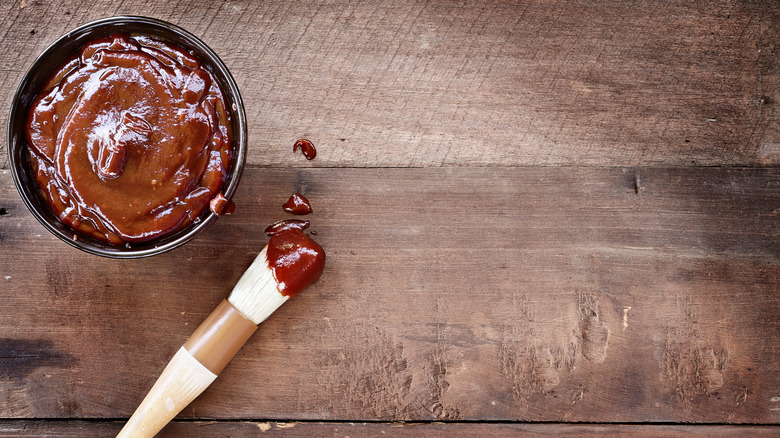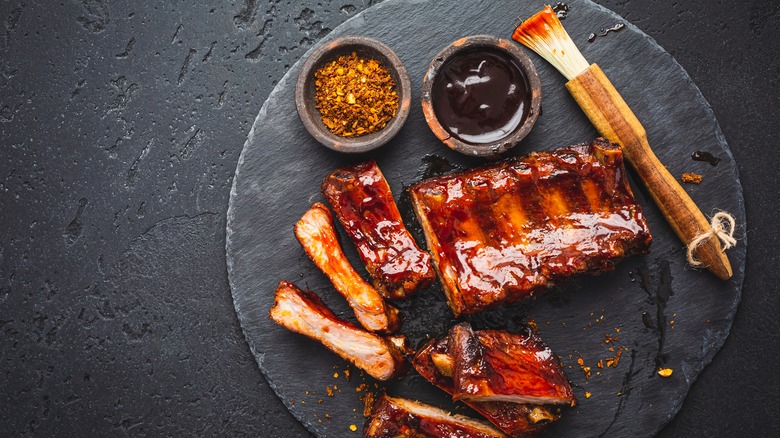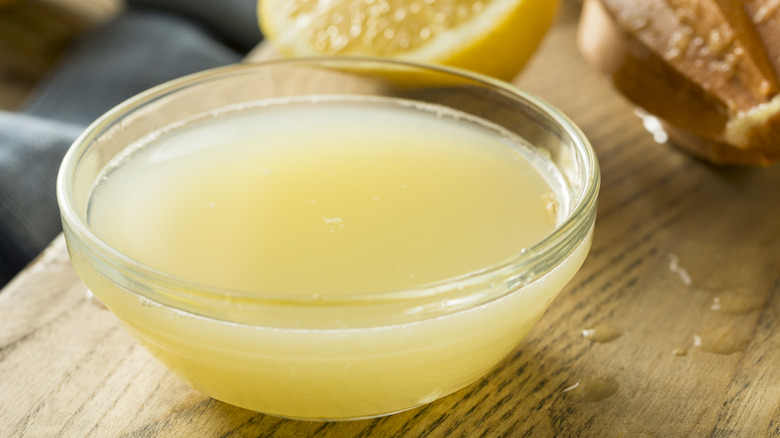The Tangy Ingredient Your Barbecue Sauce Desperately Needs
Ask any ordinary barbecue lover what makes for the perfect barbecue sauce, and you'll be sure to get a few different answers. When it comes to barbecue, fans staunchly take their stance depending on their region's sauce variations and preferences. Still, whether you prefer your barbecue sauce vinegar- or tomato-based, sweet or tangy, one ingredient can add a little brightness to any homemade barbecue sauce or brighten up a store-bought sauce in a pinch: Lemon juice.
You may not think of the zesty lemon as a key ingredient for smoky, finger-licking barbecue sauce, but it's the perfect acidic addition to take any one-note savory sauce to a new dimension. Lemon juice pairs particularly well with a sweeter barbecue sauce, but that doesn't mean it can't help your smokier sauce pop, either. If you're making homemade barbecue sauce, you can count on the lemon juice to help keep your sauce fresh a bit longer, as it's a natural preservative.
Barbecue dishes that are begging for tangy-sweet barbecue sauce
A tangy, lemony barbecue sauce goes well with any smoked meat, but a sweet barbecue sauce with some lemon juice glides beautifully over grilled chicken while enhancing the chewier meat with some sticky sweetness. You may traditionally enjoy ribs paired with a thicker, heavier sauce, but don't underestimate how lemon juice can intensify and balance out these smoked meats.
Reduce the amount of vinegar in your sauce recipe or substitute lemon juice entirely. If the sauce is too acidic or lemony, adjust by adding more sweetness. Brown sugar works best to help maintain a thick, full-bodied barbecue sauce. Don't get too excited and make the mistake of adding your barbecue sauce to the meat too early. It's best to add it right before the meat is done cooking so it doesn't burn away before you even get a taste.
Lemon juice holds a place in barbecue sauce history
America came to love barbecue sauce through the innovative substitutions of early American versions. Citrus was not as abundant in the 1800s American South as in the French West Indies, where barbecue sauce was supposedly first seen, so vinegar stepped in to give it the acidic lift it needed. While tart citrus could overwhelm smoked meat on its own, it becomes complex and delicious when combined with other ingredients.
In today's world, many popular store-bought barbecue sauces in America are tomato-based sweet sauces. Some homemade versions often include ketchup and sugar to make a tomato-y sweet concoction, like a homemade Lone Star barbecue sauce. Store-bought barbecue sauces are quick and easy, but their extra sweetness could sometimes use a bit of a lift. Take a page from the history books and doctor up any store-bought barbecue sauce with lemon juice to offset the sugar with a zap of tanginess, balancing the sauce's pH level. Once you try adding lemon juice to your barbecue sauce, you'll be craving this lip-smacking sauce at every barbecue.


